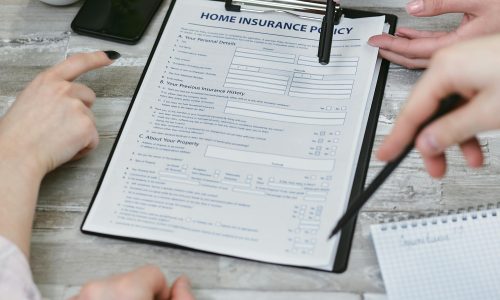Dealing with a homeowners insurance claim can be a stressful and complicated process. To make matters worse, some homeowners make costly mistakes that result in their claims being denied or underpaid. In this blog post, we highlight some common mistakes homeowners make that can jeopardize their insurance claims, and we offer tips on how you can avoid making the same errors, ensuring your claim is covered and you receive the compensation you deserve.
Table of contents
Failing to Understand Your Insurance Policy
One of the most common mistakes homeowners make is not fully understanding their insurance policy. This lack of knowledge can lead to submitting a claim for a peril that is not covered or having inadequate coverage limits.
How to Avoid: Carefully read your insurance policy, and make sure you understand the extent of your coverage, including any exclusions or limitations. If you have questions or concerns, consult your insurance agent or a knowledgeable professional to ensure you have adequate coverage.
Neglecting Maintenance and Repairs
Insurance companies may deny or reduce a claim if they determine that the homeowner’s negligence contributed to the damage. Failing to properly maintain your home or address potential hazards can result in denied claims.
How to Avoid: Regularly inspect your property for potential hazards and perform necessary maintenance and repairs promptly. Keep records of maintenance work, as this documentation can be valuable evidence in the event of a claim.
Insufficient Documentation of Damages and Losses
When filing a claim, it’s crucial to provide thorough documentation of the damages and losses incurred. Inadequate documentation can result in a lower settlement or a denied claim.
How to Avoid: Immediately after a loss, take photos or videos of the damage, and make a detailed inventory of damaged or destroyed items, including their age, condition, and estimated value. Keep receipts for significant purchases and any repair work completed.
Delaying the Claims Process
Waiting too long to report a claim or submit necessary documentation can negatively impact your settlement. Insurance companies have deadlines for reporting claims, and delays can lead to a denied or reduced claim.
How to Avoid: Report your claim to your insurance company as soon as possible, and promptly provide any requested documentation. Keep a record of all communication with your insurer, including phone calls, emails, and letters.
Overlooking Additional Living Expenses (ALE) Coverage
Many homeowners are unaware that their policy includes Additional Living Expenses (ALE) coverage, which can reimburse them for expenses incurred if their home is uninhabitable due to a covered loss.
How to Avoid: Review your policy to determine if you have ALE coverage and understand its limitations. If your home becomes uninhabitable, keep detailed records of your additional living expenses, such as hotel bills and increased meal costs.
Wrapping up
By avoiding these common mistakes, you can improve your chances of having a successful homeowners insurance claim and receiving the compensation you deserve. Remember, knowledge is power, and understanding your policy, maintaining your home, and documenting damages and expenses are essential steps to ensure your claim is covered. Don’t let these pitfalls stand in the way of protecting your home and financial well-being.
FAQ
Knowing your policy helps avoid claims for uncovered perils and ensures you have adequate coverage.
Claims may be denied or reduced if damage results from negligence or lack of proper maintenance.
Document all damages with photos or videos and create a detailed inventory of lost or damaged items.
Delays can lead to denied claims or reduced settlements due to missed deadlines.
ALE coverage reimburses additional living expenses if your home is uninhabitable, requiring receipts for expenses like hotel stays.


